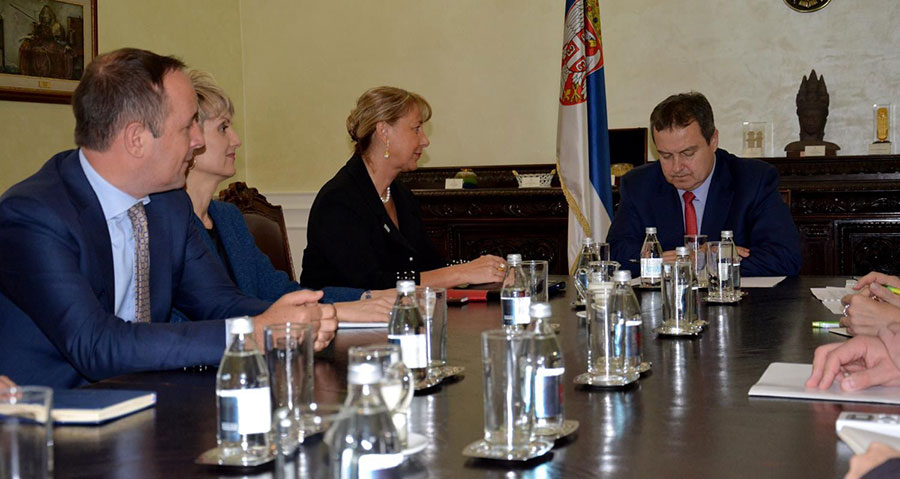Head of the EU Delegation to Serbia Sem Fabrizi said that the EU had donated EUR80 million for refugee crisis-related activities in Serbia.
“We are grateful for Serbia’s constructive and humane response to crisis,” Ambassador Fabrizi said on the occasion of marking the 25th anniversary of IOM’s presence in Serbia.
Opening the event Migration Partnership: Achievements and Perspectives, Fabrizi said that over the course of 2015 and 2016, 1.2 million migrants had arrived in Europe, describing the current crisis as the biggest refugee crisis since World War II.
Human trafficking prevention and strengthening of common asylum policy, based on solidarity, are EU’s priorities, he said.
IOM Regional Director Argentina Szbados said that due to large movements of people we were living in times of humanitarian crisis, adding that the number of refugees was projected to reach 250 million globally.
Argentina Szabados said that the Western Balkans region was faced with various types of migrants – asylum seekers, economic migrants, victims of violence and human trafficking.
IOM employs 11,000 people. We have 60 people of Serbian nationality deployed around the world and 128 of them working here in Serbia. The 25-year partnership with Serbian Government proves that we can face new challenges together, Argentina Szabados said.
Serbian Minister of Foreign Affairs Ivica Dacic said that Serbia had for more than two decades been facing with all kinds of migration – rural to urban migration, emigration, refugees, IDPs…
“International migration is an important factor of social transformation in all parts of the world. Serbia can contribute to dealing with this issue globally due to its considerable experience,” Dacic said.
The prevention of smuggling and human trafficking are among the biggest challenges in grappling with this issue, he said.




